Knowledge Hub (Circle Economy)
Knowledge Hub is an E-Learning Content Management Aggregator for Circle Economy
Industry
E-learning, Media
Project duration
Aug 2020 - Dec 2020
Country state
Netherlands
Team
5 Members
Technology
Knowledge Hub is the open-collaborative library for case studies about the circular economy 🏃
The platform provides a library of circular economy case studies, as well as frameworks of circular strategies and policy instruments, which serve as inspirational examples for new initiatives. Anyone interested in contributing to the global transition to the circular economy can now openly collaborate in adding and editing case studies to the global library. Experts in specific fields can take on the role of curators to maintain content quality. Finally, organizations with existing case libraries can upload their cases to this common library within dedicated, branded Knowledge Hub ‘collections’ that they can share with their communities.
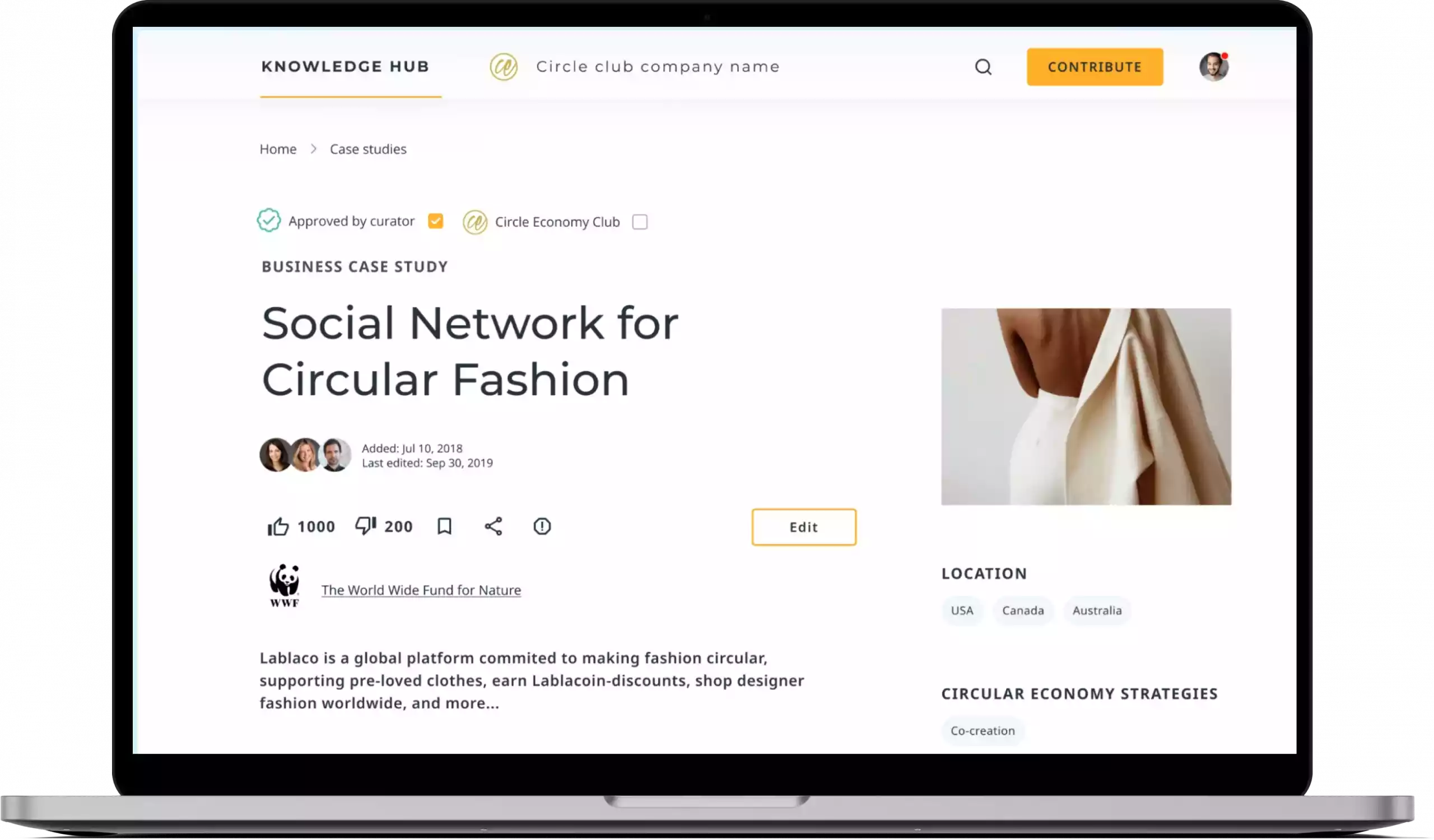

“The enthusiasm of the team was impressive. They played a key role in the success of our project.”
Results ✨
Case Studies Compilation
2 000+ case studies related to the circular economy the project has successfully compiled
Free access
the platform offers free access to all the compiled case studies
Tagging System
each case study is tagged with key information such as relevant industries, impacts, and location
Customizable Libraries
the platform provides users with the flexibility to create their own libraries
Project goals ⚡️
The project is on a mission to accelerate the transition towards a circular economy by providing insights into what a circular future might look like for a company, a region, etc., and by coming up with scenarios for how to get there.
Challenges ⛰
01.
The main challenge was to make the Knowledge Hub a go-to source for circular economy knowledge
02.
Circle Economy aims to bring all of the insights, best practices, and research on the circular economy to one place
03.
Creation microservice architecture for Web-app
04.
Integration with existing AWS services and infrastructure of the client
05.
Customization of headless CMS and integration with elastic search
06.
Storing of historical data by changing articles, cases
07.
Using third party service as authorization system
The process 🚧
The development process of the Knowledge Hub involved meticulous planning, design, and implementation to create an open-collaborative platform for circular economy case studies. We conceptualized the idea, designed a user-friendly interface, and curated a diverse collection of case studies from various stakeholders. Our team developed the platform with features like search functionality, case study submission and editing, and customizable libraries. Through rigorous testing and continuous feedback from our community, we refined the platform to ensure functionality, usability, and stability. The Knowledge Hub was launched, engaging a wide audience and fostering collaboration towards a circular economy. Our structured approach has enabled us to provide a valuable resource for accelerating the transition towards a more sustainable future.
Stages 🎢
01.
Planning and requirements gathering. This stage involves understanding the project's objectives, gathering requirements, and defining the scope of the Knowledge Hub. Key considerations include identifying target users, desired features, and overall project goals.
02.
Design and architecture. In this stage, the platform's user interface (UI) and user experience (UX) are designed. The information architecture, navigation flow, and visual design elements are created to ensure an intuitive and engaging user interface.
03.
Backend development. The backend development stage involves building the server-side infrastructure, including setting up databases, implementing APIs, and integrating necessary frameworks. This enables the core functionality of the Knowledge Hub, such as case study management, user authentication, and data storage.
04.
Frontend development. The frontend development stage focuses on implementing the designed UI/UX, creating responsive web pages, and integrating interactive elements. This includes developing features like search functionality, case study submission forms, tagging systems, and customizable libraries.
05.
Testing and quality assurance. Rigorous testing is conducted to identify and address any bugs, performance issues, or usability concerns. This includes functional testing, usability testing, compatibility testing, and performance testing to ensure a stable and seamless user experience.
06.
Deployment and launch. Once the platform has undergone thorough testing and quality assurance, it is deployed to a production environment. This involves configuring servers, setting up hosting infrastructure, and ensuring the necessary security measures are in place.
07.
Continuous Improvement and Maintenance. After the launch, ongoing maintenance, monitoring, and updates are performed to address any issues, introduce new features, and improve the platform based on user feedback.
Team composition 👨💻
1 Front-end Developer
1 Back-end Developer
1 QA Engineer
1 UX/UI Designer
1 Business Analyst
Technology stack ⚙️
Back-end: Javascript, Strapi.io, PosgreSQL, Python/Django
Front-end: Typescript, React.js, Redux, React, AWS
Core features 💻
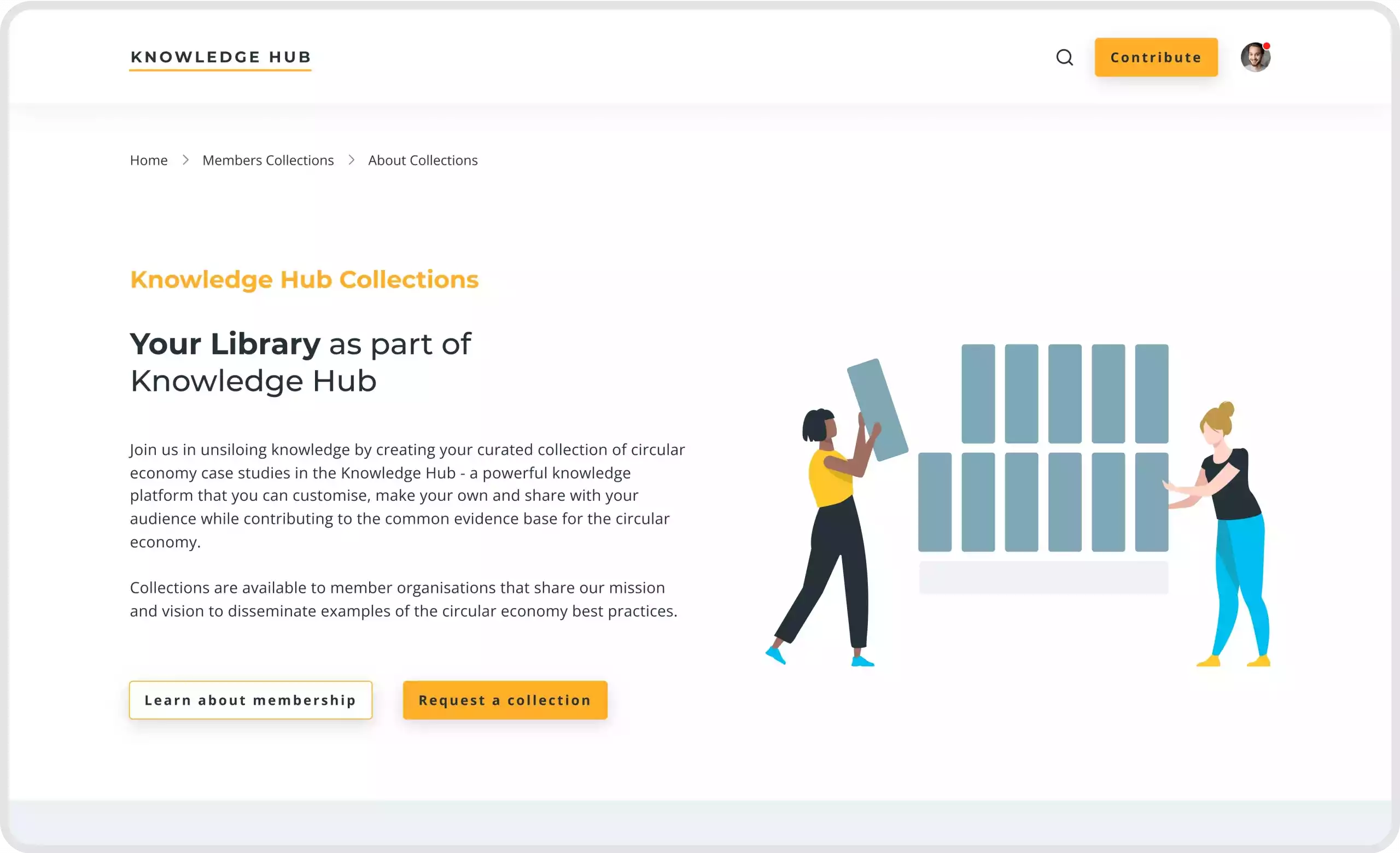
Microservice architecture
- The Knowledge Hub utilizes a microservice architecture, allowing for modular and scalable development, enabling efficient management and enhancement of different components of the platform.
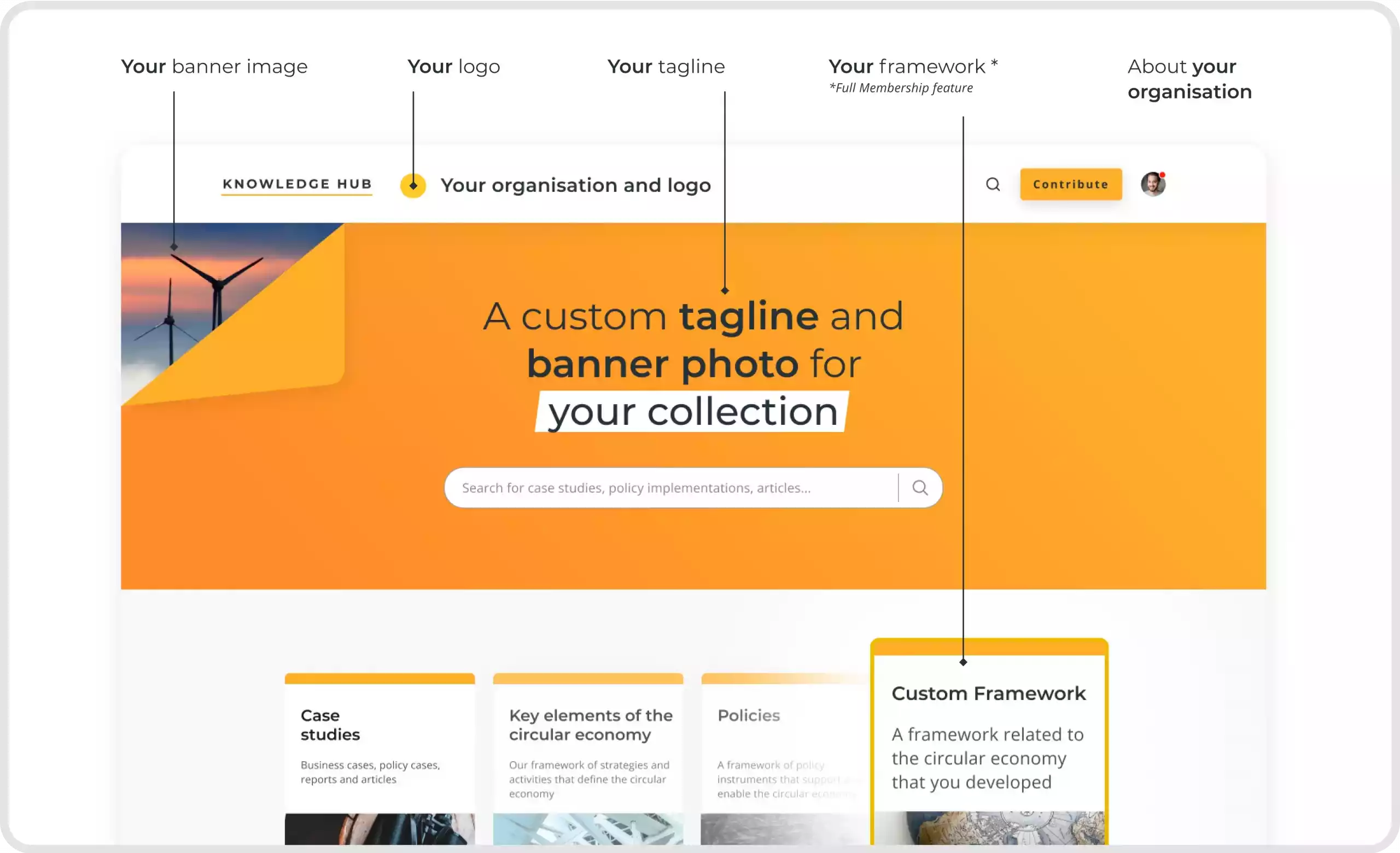
Integration with existing AWS services and infrastructure of the client
- The platform seamlessly integrates with the client's existing AWS services and infrastructure, ensuring compatibility and leveraging the client's existing resources for optimal efficiency.
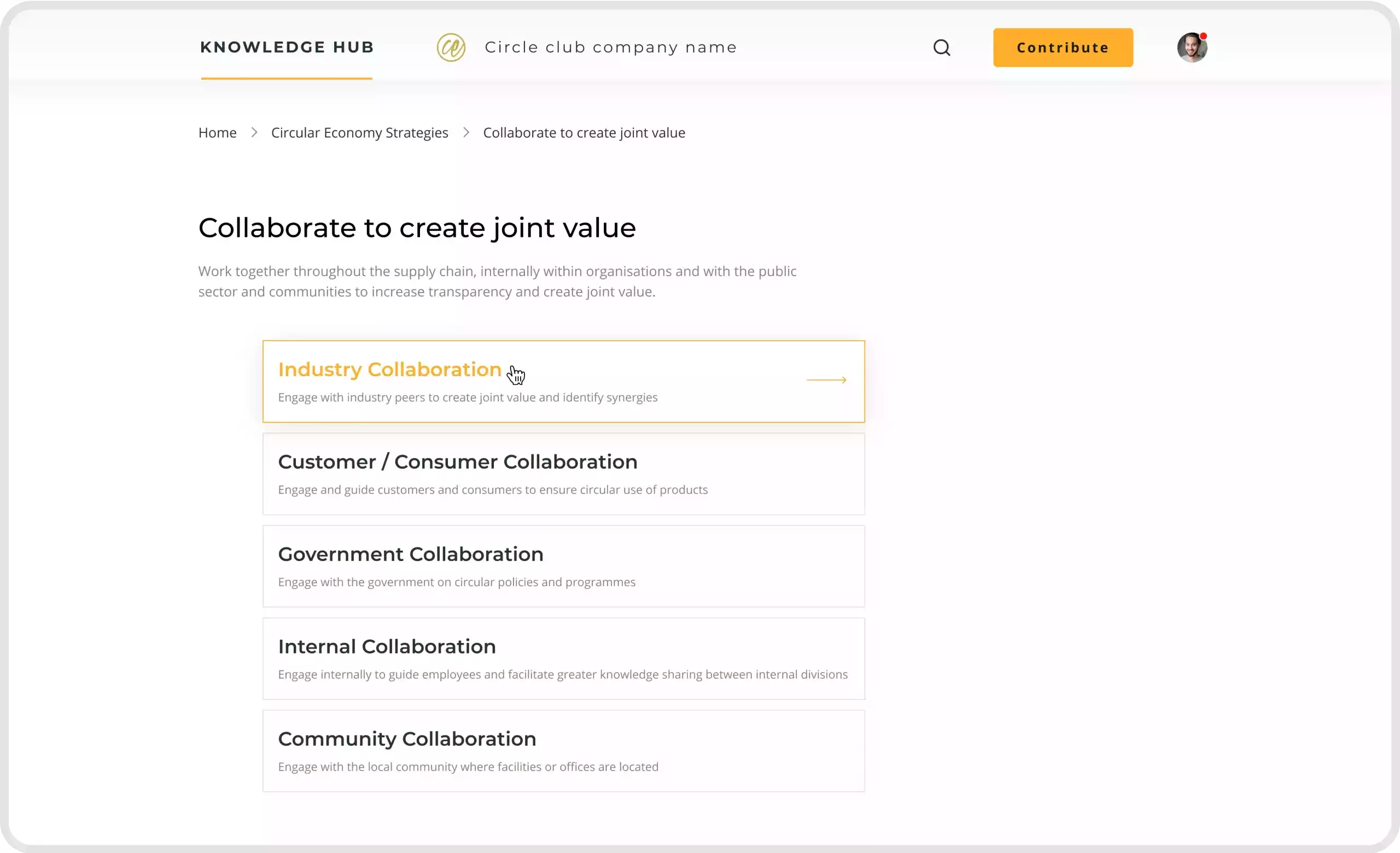
Customization of headless CMS
- The Knowledge Hub offers the flexibility to customize the headless CMS (Content Management System), allowing clients to tailor the content creation and management process to their specific needs and branding requirements.
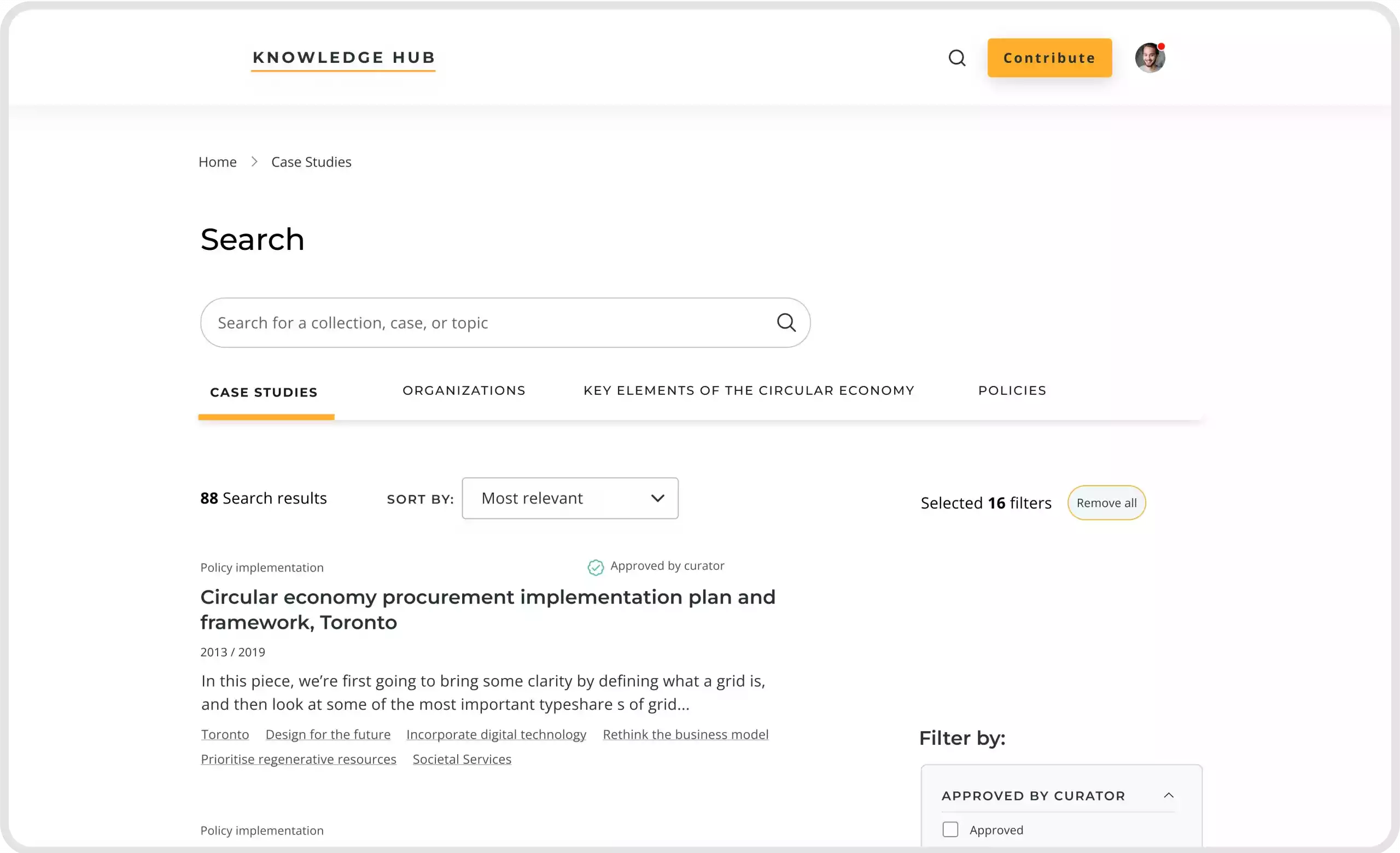
Elastic Search integration
- The platform integrates Elastic Search, a powerful search engine, enabling users to quickly and accurately search and discover relevant case studies and content within the Knowledge Hub.
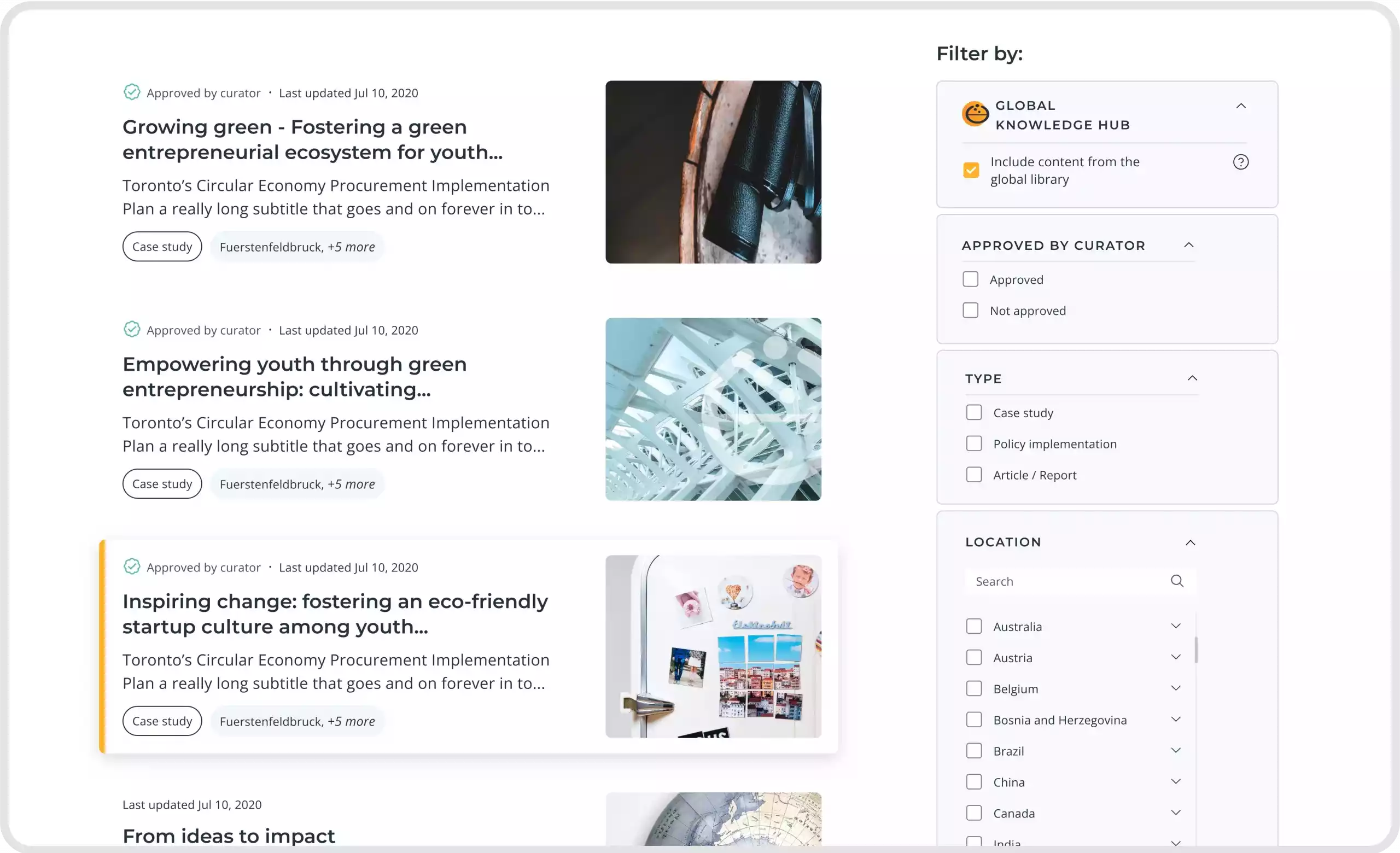
Storing of historical data by changing articles, cases
- The platform allows for the storage of historical data by tracking and documenting changes made to articles and cases over time. This feature ensures a comprehensive and traceable record of updates, revisions, and historical information within the Knowledge Hub.
More case studies
Do you want to start a project?
Meet us across the globe

United States
66 W Flagler st Unit 919 Miami, FL, 33130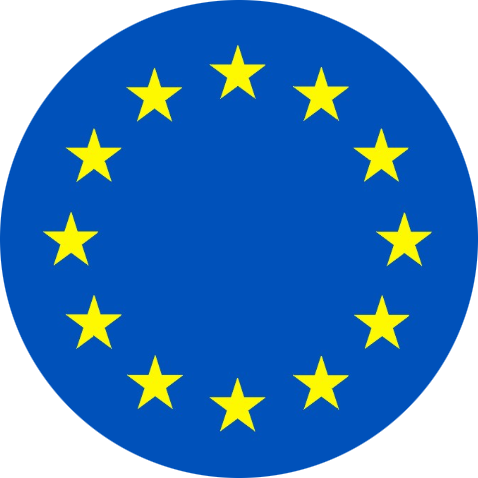
Europe
109 Borough High St, London SE1 1NL, UKProsta 20/00-850, 00-850 Warszawa, Poland
Vasyl Tyutyunnik St, 5A, Kyiv, Ukraine
Av. da Liberdade 10, 1250-147 Lisboa, Portugal




















